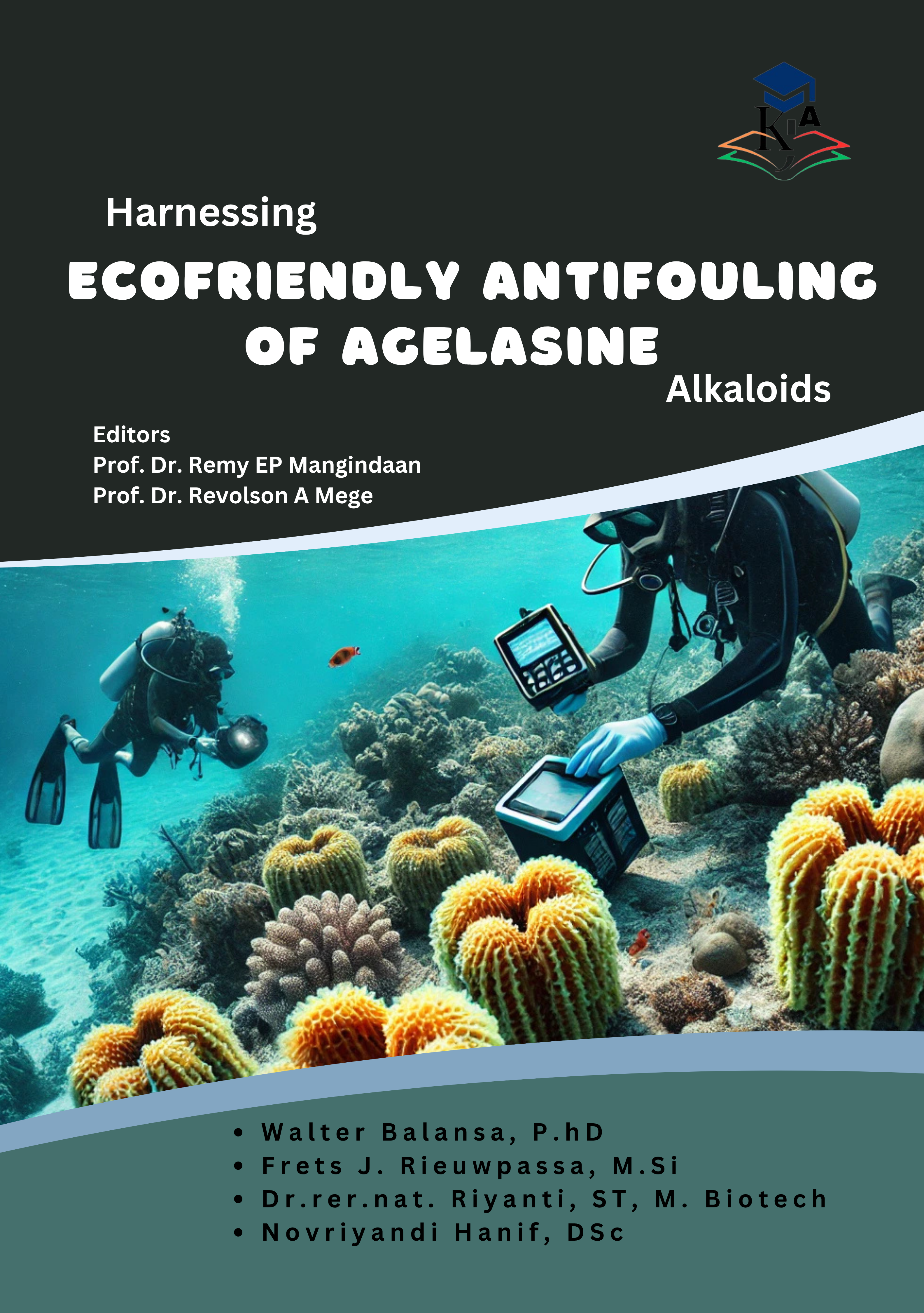Harnessing Ecofriendly Antifouling of Agelasine Alkaloids

Biofouling, the unwelcome buildup of microorganisms, plants, algae, and animals on submerged surfaces, poses a substantial challenge for the maritime and aquaculture sectors. The economic costs, operational inefficiencies, and environmental impacts are profound, necessitating innovative and sustainable solutions. This monograph," Harnessing Ecofriendly Antifouling of Agelasine Alkaloids", is a culmination of extensive research dedicated to addressing these issues through the exploration of natural compounds. Our journey into the world of antifouling research began with a fascination for marine biology and the incredible biodiversity found within our oceans. The marine sponge Agelas nakamurai, with its potent bioactive compounds, emerged as a particularly promising candidate in the quest for eco-friendly antifouling solutions. This monograph details the rigorous scientific processes, from field studies and computational analyses to molecular docking and cytotoxicity evaluations, that have led to the identification of promising antifouling agents. Throughout this work, we have aimed to balance the technical intricacies of the research with a broader understanding of its implications for the shipping and aquaculture industries. The discovery of new metabolites through innovative computational, toxicological and field studies not only advances our scientific knowledge but also offers practical solutions to reduce the environmental footprint of antifouling practices.

